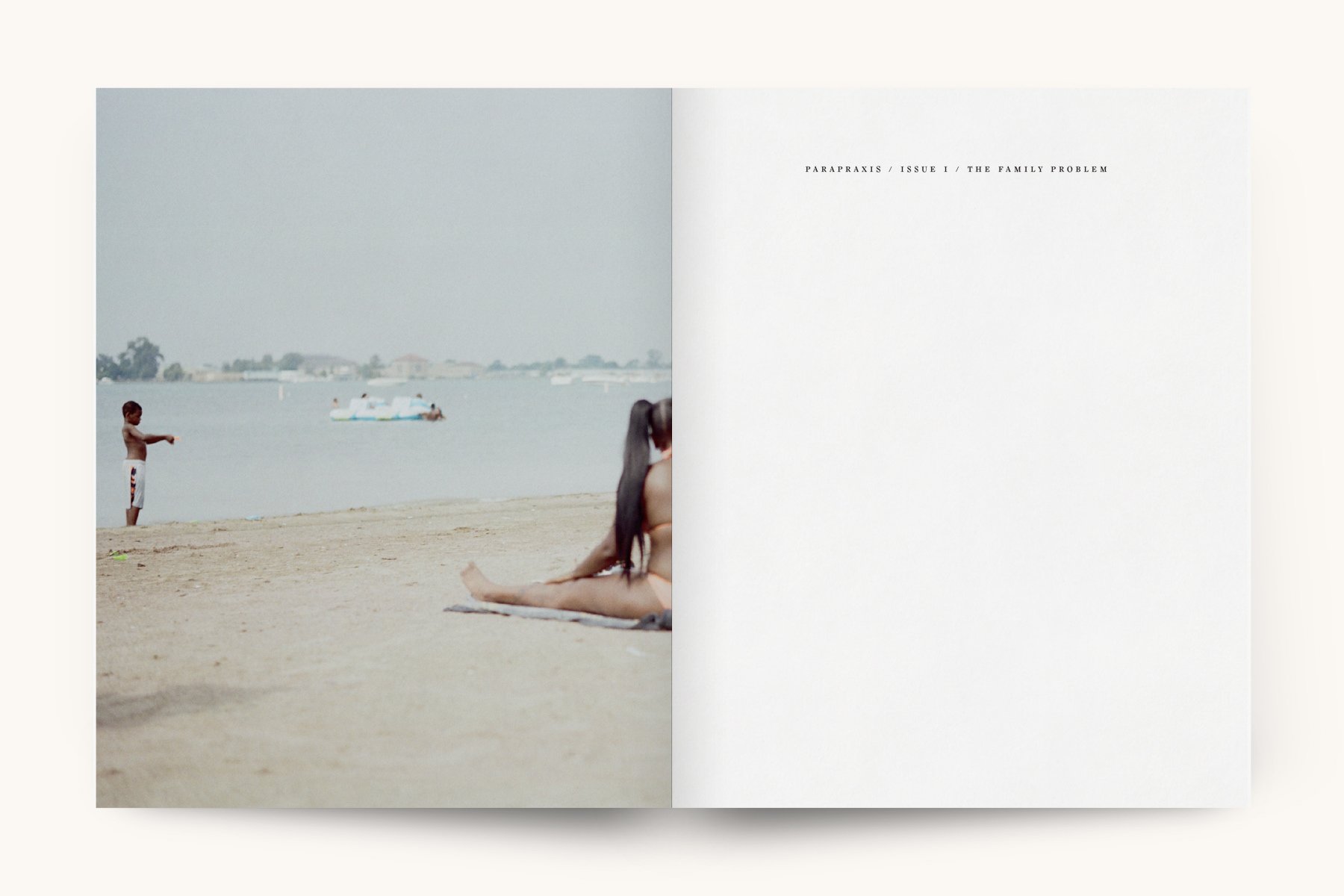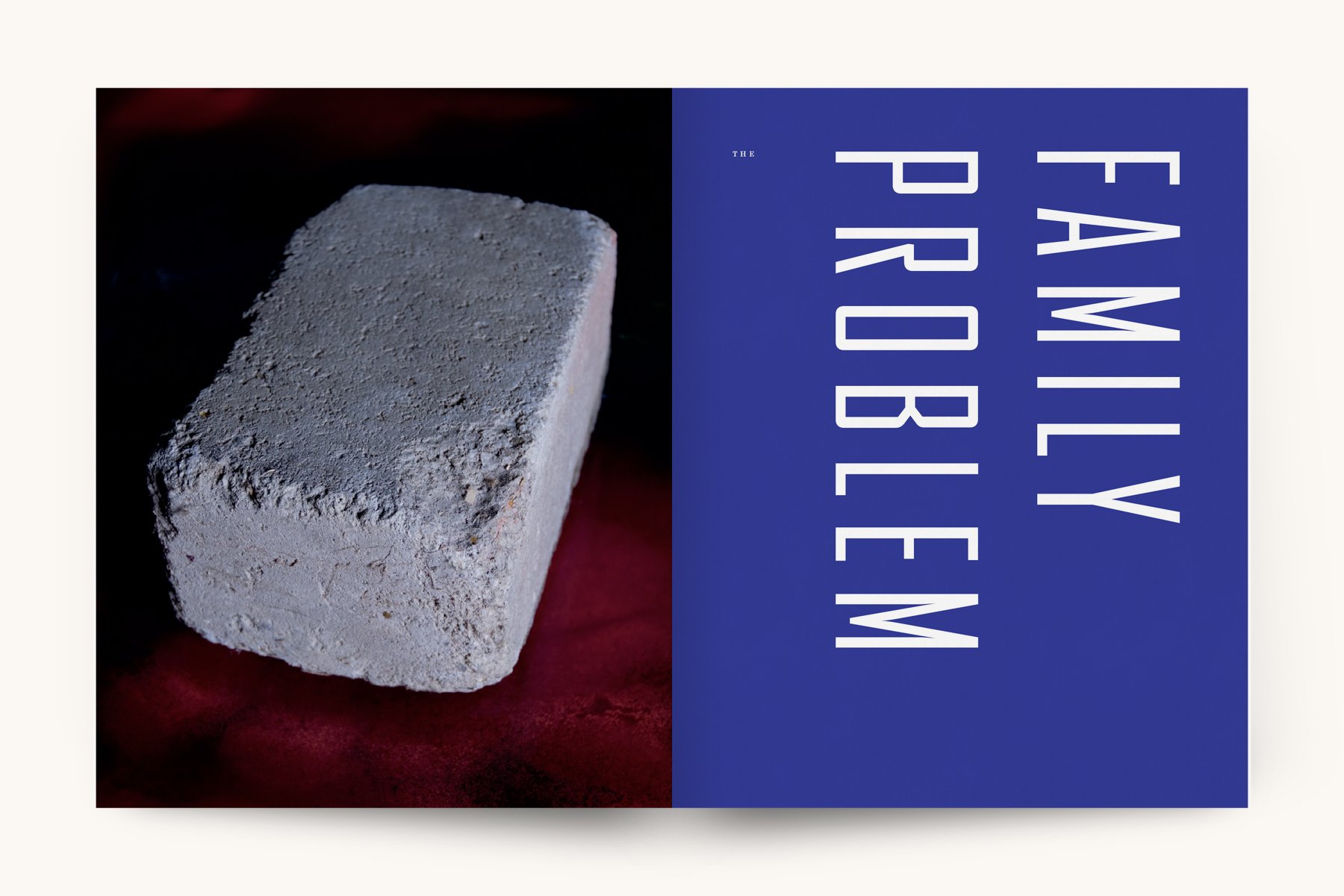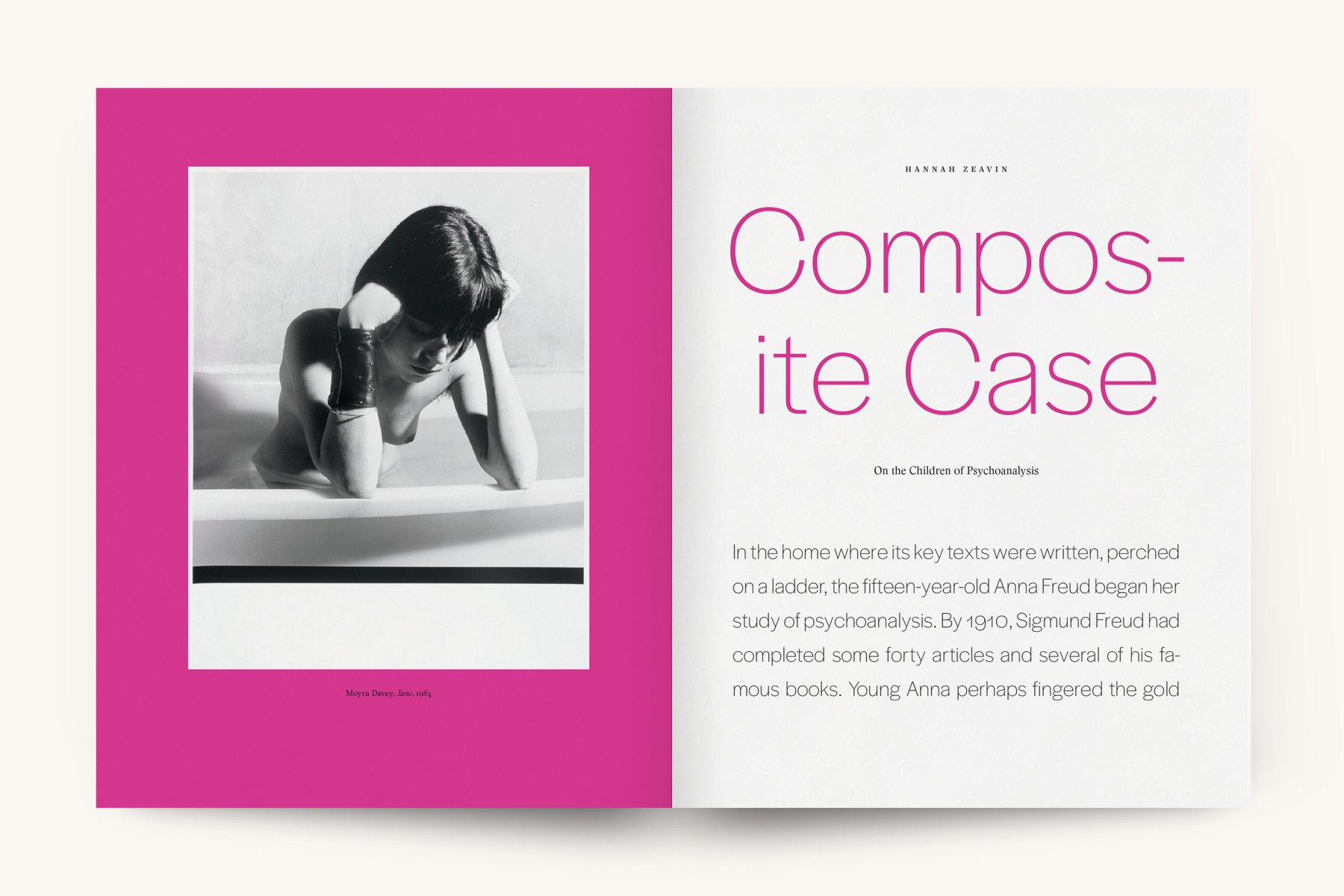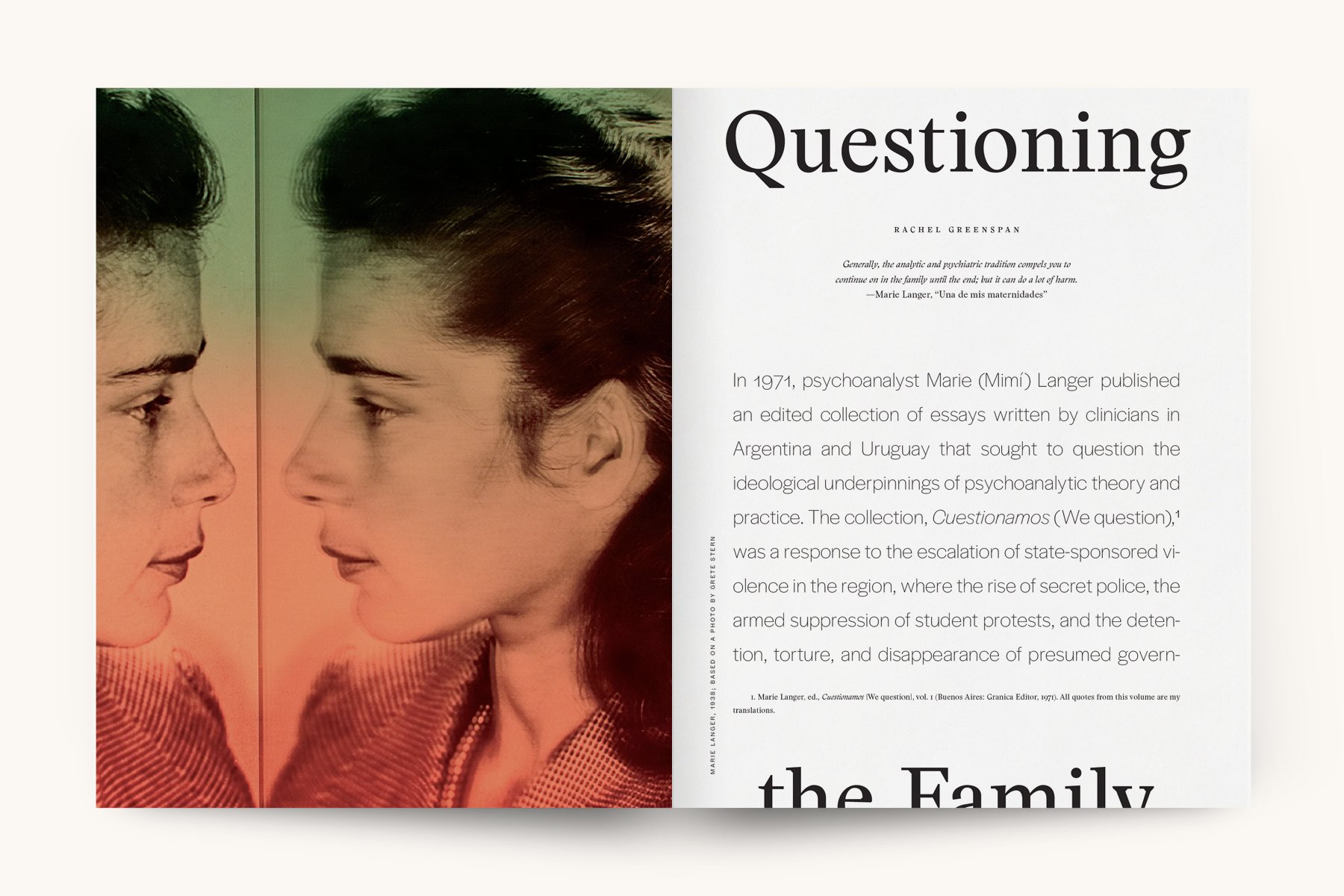 Image 1 of 1
Image 1 of 1


Parapraxis Issue 04: Security
A secure hand props up the head that cannot yet hold itself up. Nourishment cannot be secured without the other and must come frequently. The infant’s body relies on another body, who slowly comes more fully into view. Psychoanalysis posits security as among our earliest needs, starting with our first encounters—those most basic, physical interactions between caregiver and infant. In the infant-maternal scene, security is the shape and scope of safety. Its original availability makes its eventual withdrawal possible and tolerable, or not. When it's working, the analytic room can function as a shelter, a place to weather turbulence as traumas, wounds, and losses accumulate in a catastrophic present.
The psychic life of security exists at every scale. The fantasy of a secure “inside”—the home, the people, the nation, the border—is protected from breach by the enforcement of limits that corroborate the existence of threat. The insecure nation state is the most violent, repressive, annihilative, and its citizens become insecure in turn—both vulnerable to its wounded attachment to any given state and elected to bear the crises of its reaction. In such conditions, an excitable body politic is unleashed into a flood of anxious energy as the nation rationalizes violence in the name of security’s supposed reality principle.
Security is always a fantasy. The question is what we make of it. Introjecting mother, eating dirt. Escaping therapeutic boarding school. Israel in and out of the consulting room. Essays by Akshi Singh, Thomas Ogden, Tiffany Lethabo King, Hussein Omar, and Samuel P. Catlin. A quiz by Anahid Nersessian, newly translated Francesc Tosquelles, and more.
Now available for pre-order. Copies will ship in August.
A secure hand props up the head that cannot yet hold itself up. Nourishment cannot be secured without the other and must come frequently. The infant’s body relies on another body, who slowly comes more fully into view. Psychoanalysis posits security as among our earliest needs, starting with our first encounters—those most basic, physical interactions between caregiver and infant. In the infant-maternal scene, security is the shape and scope of safety. Its original availability makes its eventual withdrawal possible and tolerable, or not. When it's working, the analytic room can function as a shelter, a place to weather turbulence as traumas, wounds, and losses accumulate in a catastrophic present.
The psychic life of security exists at every scale. The fantasy of a secure “inside”—the home, the people, the nation, the border—is protected from breach by the enforcement of limits that corroborate the existence of threat. The insecure nation state is the most violent, repressive, annihilative, and its citizens become insecure in turn—both vulnerable to its wounded attachment to any given state and elected to bear the crises of its reaction. In such conditions, an excitable body politic is unleashed into a flood of anxious energy as the nation rationalizes violence in the name of security’s supposed reality principle.
Security is always a fantasy. The question is what we make of it. Introjecting mother, eating dirt. Escaping therapeutic boarding school. Israel in and out of the consulting room. Essays by Akshi Singh, Thomas Ogden, Tiffany Lethabo King, Hussein Omar, and Samuel P. Catlin. A quiz by Anahid Nersessian, newly translated Francesc Tosquelles, and more.
Now available for pre-order. Copies will ship in August.











